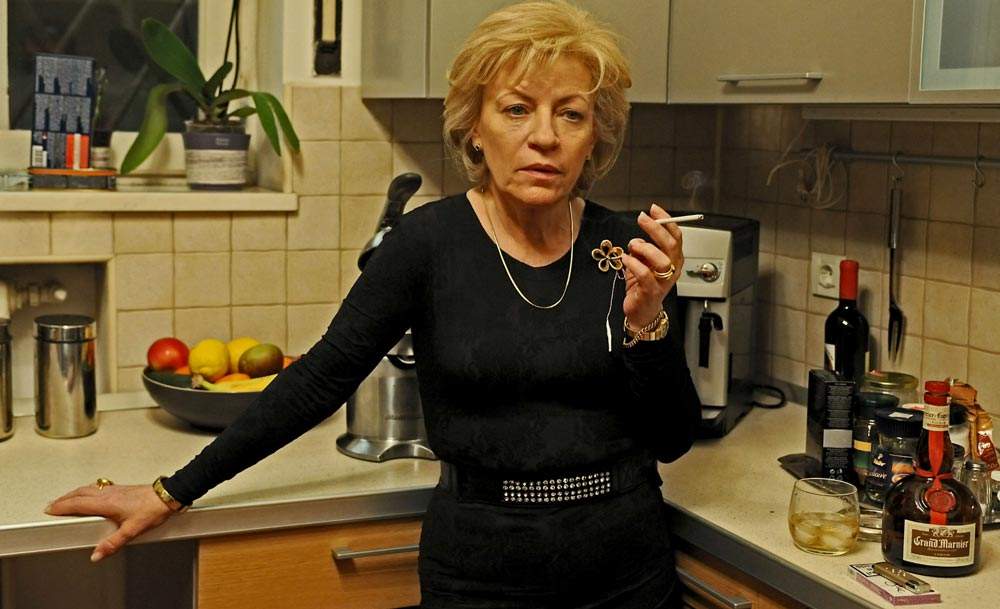Child’s Pose
Romanian New Wave plumbs the depths of mother-son relations.
Overview
What family dynamic holds greater prospect for drama than the one between a boy and his mother? From Norman Bates to Only God Forgives to Alex Winter's stepmum in Bill & Ted's Excellent Adventure, movies are full of memorable mother/son pairings, not all of which have been entirely healthy. It's enough to make you think Freud might have been on to something.
The latest picture to plumb the depths of maternal relations is Calin Peter Netzer's Child Pose out of Romania. Actress Luminita Gheorghiu gives a towering performance as Cornelia, a wealthy, overbearing mother who attempts to subvert justice after her negligent adult son Barbu (Bogdan Dumitrache) runs over a 14-year-old boy.
As Cornelia bribes and bullies her way through the country's corrupt legal system, oblivious — or indifferent — to the pain that she leaves in her wake, viewers are offered a cynical portrayal of wealth and class in post-Stalinist Romania. Clad in expensive furs, Cornelia cuts an imposing figure, particularly in comparison to the impoverished family of the deceased teen and the overworked rural police force assigned to investigate the case.
In both theme and style, Child's Pose is very much in keep with the emerging Romanian New Wave — currently all the rage amongst highfalutin film fans. Netzer adopts a minimalist approach to the drama that's acidified by bitter black humour. Handheld camerawork enhances the sense of realism, along with our feelings of outrage and discomfort.
The truth is, it's an extremely unpleasant experience being trapped in the same room with Cornelia. Plenty of films manage to succeed in spite of their unpleasant protagonists, but Child's Pose isn't one of them. You can understand and to an extent even sympathise with Cornelia's actions, all of which are born out of a deep — if frequently controlling and occasionally downright creepy — love for her son. But that doesn't change the reality of her behaviour, which is appalling by any reasonable standard.
The pacing, meanwhile, is unyieldingly slow, while also missing that sense of creeping escalation that makes the better films of the Romanian art house moment — Beyond the Hills, the unreleased Everybody in Our Family or the masterful Four Months, Three Weeks, Two Days — so dreadfully effective. Ultimately, Child's Pose has some insightful observations, but lacks the compelling quality of its contemporaries.
https://youtube.com/watch?v=wQUh3hoGSfI





